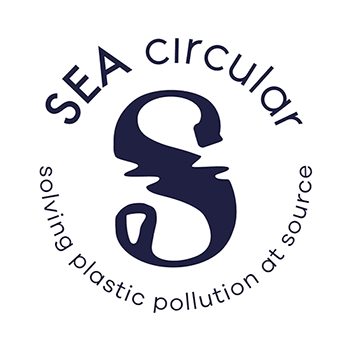UNEP is working with the hotel and hospitality sector in South-East Asia to reduce plastic use when they re-open for business after COVID-19.
27 March 2020, Bangkok, Thailand: As the tourism industry faces a crisis in South-East Asia due to coronavirus restrictions on travel, hotels are experiencing an unprecedented hiatus to ‘business as usual’. The United Nations Environment Programme (UNEP) is continuing to work with hotel personnel to leverage this time to reduce their operation’s plastic waste – with a goal to eradicate marine litter in South-East Asia.
The SEA circular initiative has held the first of many industry e-Roundtables to link-up private sector professionals in a joint effort to explore synergies to tackle the regional marine litter problem together.
Plastic is ubiquitous in the hospitality industry. From the cups, straws, coffee lids, shampoo bottles, amenity kits, water bottles, and room minibars, to the hotel breakfast buffets, event spaces, back-of-house activities and supply chain distributors, plastics are everywhere in the industry – supporting requirements for convenience, sanitation and aesthetic appeal.
UNEP and the Coordinating Body on the Seas of East Asia (COBSEA) – are working with the hotel sector through the SEA circular initiative, funded by the Government of Sweden. With the ultimate goal to inspire market-based solutions and encourage enabling policies to prevent marine plastic pollution, the project is working with South-East Asian governments, businesses and community-led organizations, with the goal of ‘less plastic wasted’ throughout the region.
Prominent hotels in South-East Asia are pioneering the field in the drive towards less plastic wasted. Through the SEA circular project, UNEP is working to ensure that the best practices and learnings from these enterprises serve to drive regional industry standards towards less plastic wasted. SEA circular is working with industry leaders – including the Phuket Hotel Association in Phuket, Thailand.
Phuket Hotel Association, Thailand: “Sustainable Phuket”
The Phuket Hotel Association (PHA) is an influential network of 75 hotels based in the island of Phuket, Thailand. The organization has set itself ambitious goals to make Phuket a sustainable destination, through responsible best practice. They are also the driving force behind an annual event launched in 2019 – the Phuket Hotels for Islands Sustaining Tourism (PHIST), billed as Asia’s largest, most innovative, and most important movement to bring sustainability to the region’s hospitality and tourism industry.
“We are continually engaging with our members and working to train key personnel to reduce plastic usage,” said Jayne MacDougall, Director of Risk Management, Le Meridian Phuket Beach Resort and Environmental Working Group, PHA.
“We started with the complete elimination of plastic bottles and straws from all our hotels, focusing on front-of-house. We have since launched a ‘Big Green Book’ of reputable suppliers and distributorsand we connect regularly with our hotels to support their monitoring and reduction of plastic waste.”
At the SEA circular e-Roundtable: Reducing plastic waste in the hospitality industry” event on 27 March 2020, PHA announced a collaboration with the Global Tourism Plastic Initiative (GTPI), led by the World Tourism Organization (UNWTO) and UNEP, in collaboration with the Ellen MacArthur Foundation.
This initiative unites the tourism sector behind a common vision to tackle the root causes of plastic pollution, enabling businesses and governments to take joint action.
“The collaboration of PHA with the GTPI will scale up our endeavours towards tackling plastic waste in Phuket,” said Jayne. “Our goal is to protect our sublime natural environment in Southern Thailand, and for PHA to inspire behaviour change throughout the industry – through our collaboration with UNEP and UNWTO.”
SEA circular e-Roundtable for the hospitality sector:
SEA circular is holding a series of ‘e-Roundtable events’ for various sectors to support plastic pollution prevention. For the hospitality industry, the e-Roundtable was held for hoteliers and tourism accommodation owners. Hoteliers discussed best practices, lessons learned and incentives for aggregate industry action. The aim was to support and urgently scale-up plastic waste reduction initiatives and commitments. The e-Roundtable explored solutions for more challenging issues, including the plastic items coming in from suppliers and from back-of-house activities. These involve areas which are not customer-facing – but are no less damaging.
SEA circular’s engagement with key players in the hotel industry will also provide vital opportunities for industry information-sharing amongst common initiatives. The ultimate goal is that collective monitoring and promotion of best practices can drive industry standards towards less plastic wasted. Concrete solutions include; reducing plastic packaging used for bathroom amenities, reducing the use of plastic bags in hotel rooms, reduction of plastic water bottles, and the elimination of plastic straws and single use plastic food or drink containers. Other initiatives to support a more circular approach to waste management include the installation of separate trash bins and waste segregation, as well as incentives and awareness-raising for guests to commit to use less plastic
More information and get involved










